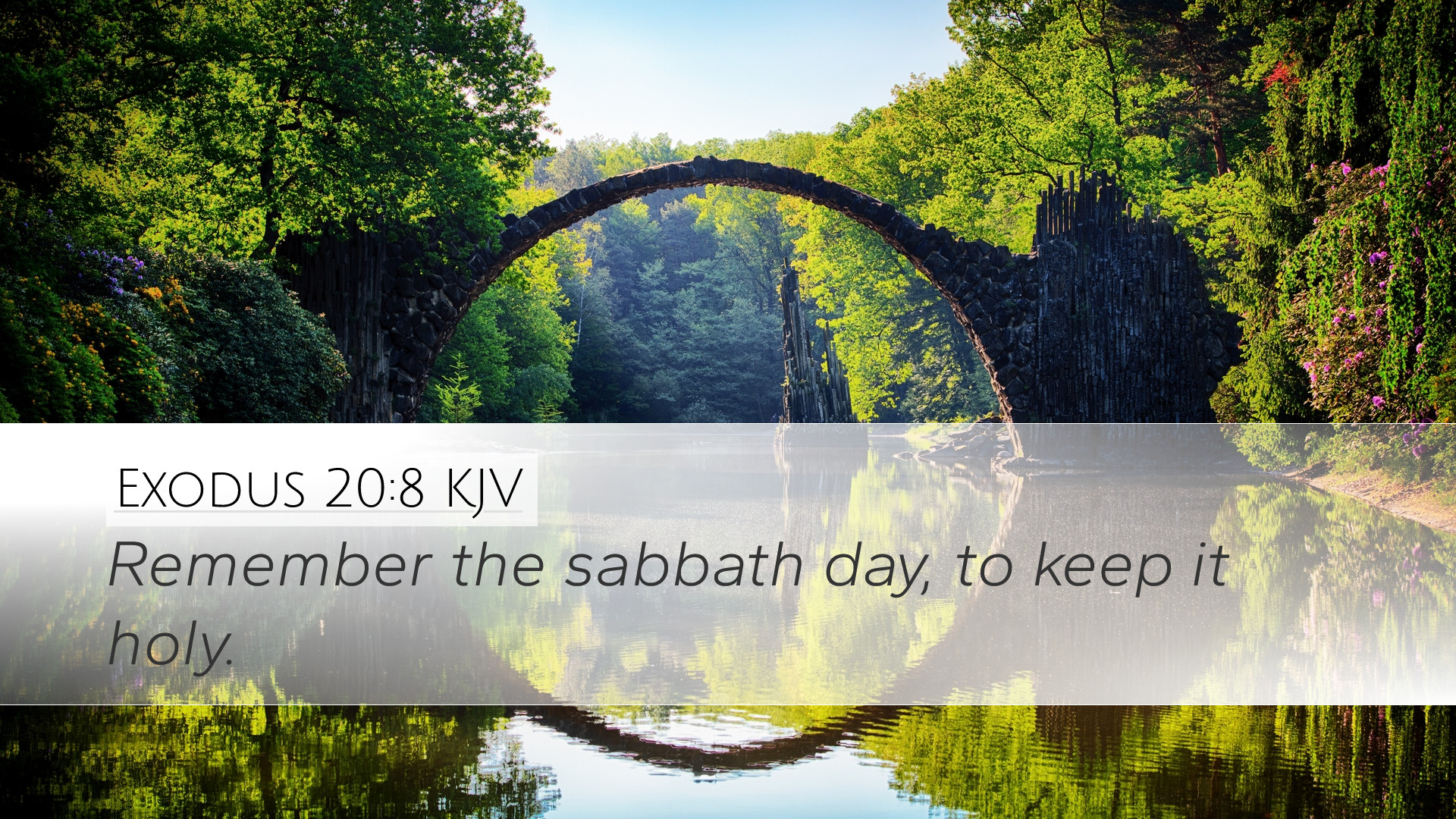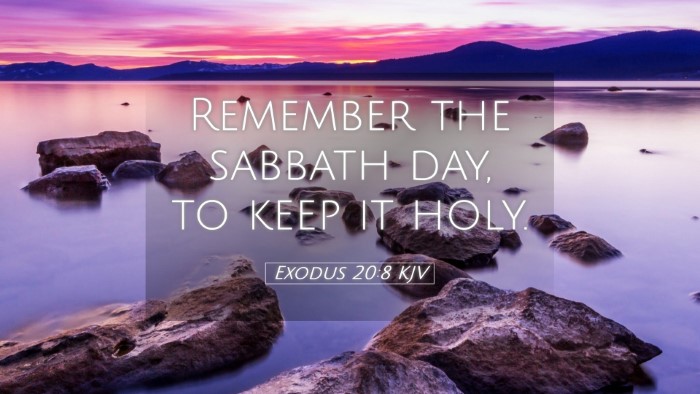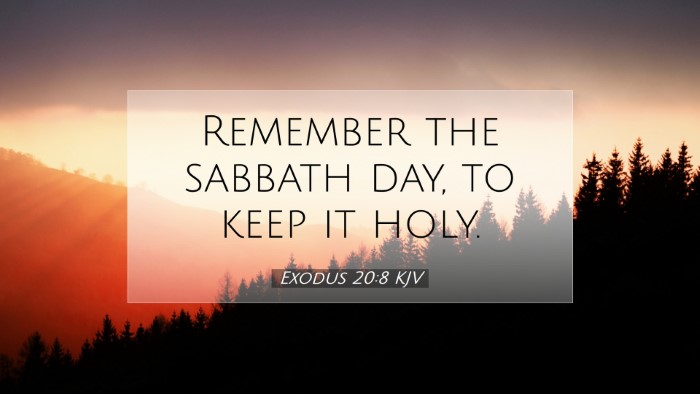Commentary on Exodus 20:8
"Remember the sabbath day, to keep it holy."
Introduction
The commandment to "remember the sabbath day" is a crucial element of the Decalogue, emphasizing a designated time for rest and spiritual focus. This commandment speaks to the need for a rhythm in life that includes rest and worship, foundational to both personal well-being and community health.
The Historical Context
The Israelites received this commandment in the context of their wilderness journey after the exodus from Egypt. The Sabbath was instituted not merely as a day of rest but as a sign of the covenant between God and His people. The observance of the Sabbath was meant to keep them grounded in their identity as a liberated people uniquely called to serve the Lord.
Theological Significance
-
God’s Example of Rest:
The commandment reflects God's own rest on the seventh day of creation (Genesis 2:2-3). By instituting the Sabbath, God establishes a model that calls His people to engage in regular reflection, rest, and rejuvenation.
-
Holiness and Separation:
The emphasis on keeping the Sabbath holy separates it from ordinary days. This separation encourages believers to view time through a spiritual lens, dedicating periods for divine communion.
-
Covenant Relationship:
Observing the Sabbath signifies the covenant relationship; it serves both as a reminder of creation and an acknowledgment of God's deliverance from slavery, allowing the Israelites to establish their identity as God’s chosen people.
Commentary Insights
Matthew Henry
Henry highlights the importance of the Sabbath as a day set apart, indicating both a cessation from labor and an invitation to worship. The Sabbath allows believers the opportunity to contemplate the mercies of God, celebrating His creation and the redemption found in Him. The heart of the commandment lies in remembering the purpose of the Sabbath, which is to draw nearer to God and to reflect on His goodness.
Albert Barnes
Barnes emphasizes that the command serves as a reminder to acknowledge God’s providence and to remind the faithful of their dependence on Him. He notes that the Sabbath is not merely a physical rest but involves spiritual engagement and renewal. For Barnes, the term "remember" signifies both a mental acknowledgment and a deliberate action to observe the Sabbath and engage in acts of worship and charity throughout the day.
Adam Clarke
Clarke provides an exegesis on the Sabbath’s dual nature: both as a day of rest and a day for worshiping God. He elaborates that the command to remember the Sabbath underscores a proactive approach to faith, urging believers to actively participate in sacred observances. Clarke also points out that the observance of the Sabbath serves a social purpose, promoting justice and equity by ensuring all people, including servants and animals, participate in rest.
Practical Applications
-
Personal Reflection:
Pastors and theologians can encourage congregations to view the Sabbath as a time for personal and communal reflection. This is a chance to assess one’s relationship with God and to renew commitments to faith.
-
Community Engagement:
The Sabbath should not only be viewed as a day of individual rest but as a community day where fellowship is emphasized. Engage in communal worship, study, and service, thereby modeling the communal aspect of the commandment.
-
Balanced Life:
In a fast-paced world, the church must advocate for lifestyle balance that incorporates rest. Encourage congregants to protect their time for spiritual enrichment, worship, and family bonding.
Conclusion
Exodus 20:8 serves as a profound reminder of the importance of rest and worship in the life of believers. By establishing the Sabbath, God does not impose an exhausting burden but rather offers a divine rhythm for humanity—a gift meant for renewal, connection, and spiritual elevation. For pastors, students, and scholars, understanding the nature of the Sabbath is integral to conveying its significance and promoting a holistic approach to faith in contemporary society.


